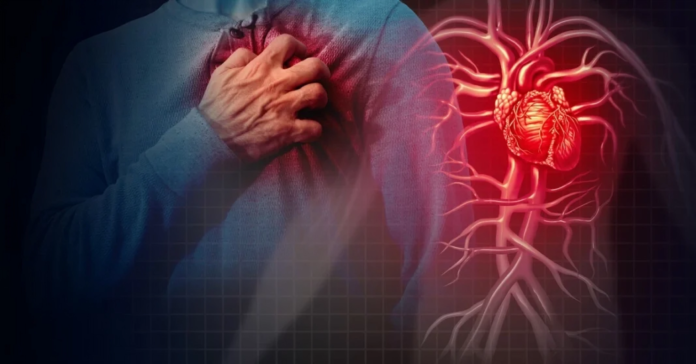The heart attack rate in Pakistan is escalating at an alarming pace, reflecting the urgent need for comprehensive policy interventions to combat the growing crisis of non-communicable diseases (NCDs) in the country. Current statistics reveal that over 41% of adults in Pakistan are classified as either obese or overweight.
In addition, more than 33 million individuals are living with diabetes, with another 10 million on the brink of developing this serious health condition. Without immediate and effective policy measures, projections indicate that the number of individuals affected by diabetes could soar to 62 million by the year 2045.
Sana Ullah Ghumman, General Secretary and Director of Operations at PANAH, underscored the severity of this health crisis during a recent press briefing held at a local hotel in Murree. He revealed that a heart attack strikes one Pakistani every minute, and one individual succumbs to heart disease every two and a half minutes. The heart attack rate in Pakistan is further exacerbated by data from the International Diabetes Federation, which states that approximately 1,100 daily deaths in Pakistan are attributed to diabetes and its complications.
One of the primary contributors to the rising heart attack rate in Pakistan is unhealthy dietary habits, which rank among the leading risk factors for heart disease, diabetes, obesity, kidney failure, and various other fatal NCDs.
Ultra-processed foods and beverages, often high in sugar, salt, and trans fats, significantly contribute to this health crisis. Sana Ullah Ghumman noted that the absence of evidence-based policies, such as front-of-pack nutrition labeling and warning signs on ultra-processed foods, hampers individuals’ ability to make healthier dietary choices.
The financial burden of diabetes management is staggering, with costs soaring to over USD 2,640 million in Pakistan in 2021 alone. Sana Ullah Ghumman emphasized that ultra-processed foods—particularly sugary drinks and junk foods—are major contributors to diabetes, heart disease, cancer, kidney failure, and other chronic diseases. He called for immediate policy action from regulatory bodies to mitigate the rising risk of diabetes and other NCDs in Pakistan.
The Pakistan Standards and Quality Control Authority (PSQCA) plays a crucial role in developing national standards and regulations to ensure access to a healthy diet for the populace. Sana Ullah Ghumman also highlighted the success of PANAH’s campaign in 2023, which resulted in the imposition of a 20% Federal Excise Duty (FED) on sweetened beverages and juices. Despite significant resistance from the sugary drinks industry, the government has decided to maintain this tax in the 2024-25 finance bill—a step in the right direction.
Sana Ullah Ghumman outlined PANAH’s two-pronged approach: raising public awareness about modifiable risk factors for NCDs and collaborating with policymakers to create evidence-based strategies aimed at reducing the consumption of ultra-processed foods. The heart attack rate in Pakistan is a pressing issue that requires urgent attention and action to protect the health and well-being of the nation.
Caristo Diagnostics, an Oxford University spinout, has pioneered an AI model that identifies individuals at risk of heart attacks within the next decade. This revolutionary technology detects cardiac inflammation not visible on standard CT scans, enabling early intervention for patients often overlooked by traditional diagnostics.
Currently, a pilot program is underway in five UK hospitals, supported by NHS England, with a decision on its broader adoption expected soon. Professor Keith Channon emphasized the model’s ability to reveal hidden biological actions, significantly reducing heart attack risks. Early findings show that patients with inflammation are 20 to 30 times more likely to suffer cardiac events in the next 10 years.
The Punjab government has launched the Chief Minister Children Heart Surgery Programme to provide free heart surgeries for over 5,000 children annually. Chief Minister Maryam Nawaz inaugurated the initiative, distributing ‘Child Surgery Cards’ to eligible families.


